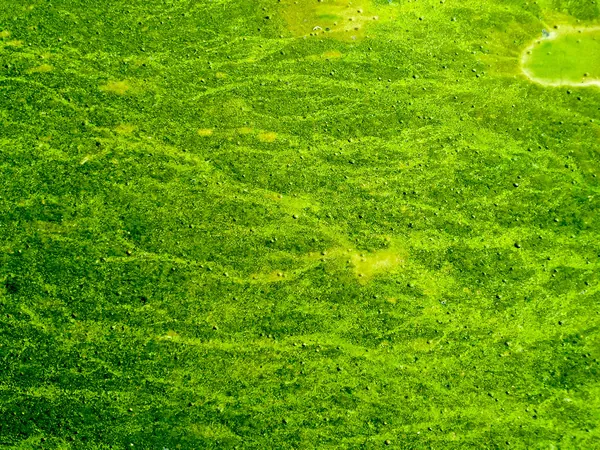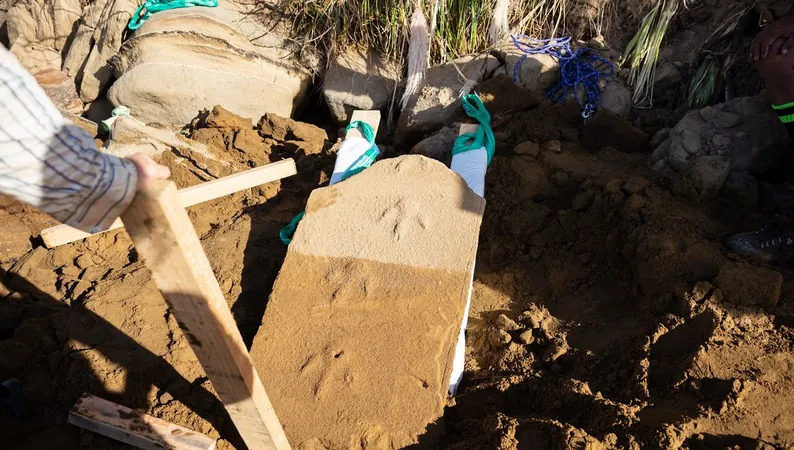
Ancient Algae Defeated Time: Scientists Revive 7,000-Year-Old Organisms!
2025-04-06
Author: John Tan
Ancient Algae Defeated Time: Scientists Revive 7,000-Year-Old Organisms!
In an astonishing breakthrough, researchers have successfully revived ancient phytoplankton buried 240 meters deep in the Baltic Sea, some of which have spent 7,000 years in a dormant state. This remarkable achievement not only highlights the resilience of life but also propels the field of resurrection ecology into new realms of possibility.
During a 2021 expedition to the Eastern Gotland Deep, scientists collected sediment cores that revealed dormant cells, which had previously entered a low-energy state in response to harsh conditions. This survival strategy is shared by various life forms, allowing them to withstand extreme environments — whether it's frigid temperatures or nutrient scarcity.
What’s striking is not just their survival but their functionality. Once brought back to the lab, these revived cells exhibited growth and photosynthesis rates almost identical to their modern counterparts, demonstrating an incredible biological robustness despite millennia without light or fresh nutrients. In fact, they began dividing and producing oxygen at rates comparable to contemporary algae — a striking indicator of their vitality.
This groundbreaking study contributes significantly to our understanding of how long-dormant organisms can offer insights into past environmental conditions. Alongside the algae, sediment samples provide vital clues regarding ancient oxygen levels, salinity, and temperatures. The research reveals a comprehensive understanding of ecological shifts through time — a chance to essentially rewind the ecological clock.
Moreover, genetic analysis of the revived algae species, identified as Skeletonema marinoi, unveiled distinct genetic profiles that correspond to significant epochs in the Baltic Sea's historical timeline. This discovery not only validates the samples' authenticity but also illustrates how these algae have adapted to environmental changes over thousands of years.
Led by biologist Sarah Bolius in the PHYTOARK research initiative, this study paves the way for what are dubbed “time-jump experiments.” These experiments could help scientists track ecological transitions over millennia using living organisms, moving beyond traditional fossil analysis. Imagine the potential to observe and understand the Earth’s evolutionary narrative firsthand!
As we stand on the brink of unraveling millennia of ecological history, one question looms large: What other secrets of ancient life are waiting to be uncovered?


 Brasil (PT)
Brasil (PT)
 Canada (EN)
Canada (EN)
 Chile (ES)
Chile (ES)
 Česko (CS)
Česko (CS)
 대한민국 (KO)
대한민국 (KO)
 España (ES)
España (ES)
 France (FR)
France (FR)
 Hong Kong (EN)
Hong Kong (EN)
 Italia (IT)
Italia (IT)
 日本 (JA)
日本 (JA)
 Magyarország (HU)
Magyarország (HU)
 Norge (NO)
Norge (NO)
 Polska (PL)
Polska (PL)
 Schweiz (DE)
Schweiz (DE)
 Singapore (EN)
Singapore (EN)
 Sverige (SV)
Sverige (SV)
 Suomi (FI)
Suomi (FI)
 Türkiye (TR)
Türkiye (TR)
 الإمارات العربية المتحدة (AR)
الإمارات العربية المتحدة (AR)